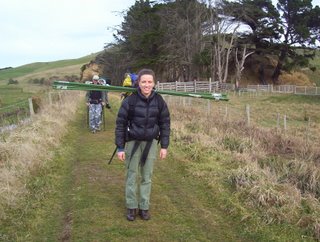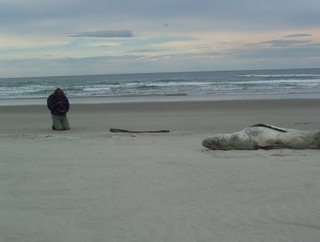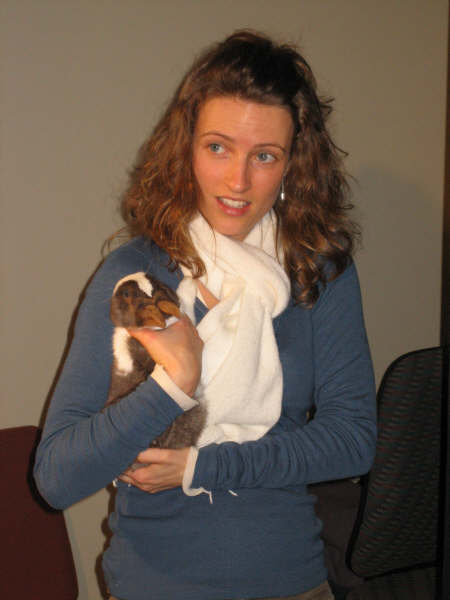9. The Zen
I have found the Zen!
Having never been a natural photographer and in class struggling to grasp the ins and outs of apertures, exposures and frame rates, I discovered over the weekend, while shooting in Wanaka, that there is something very satisfying about filming.
First there is the musing about what will be in the shot. The foreground, the back ground, the contrasting colours and shapes, the framing and the action. Then there is the setting up of the camera on its tripod, with knobs that won't tighten and others that won't loosen. The adjusting of legs to make them level or the scratching at the ground to make it level. Next comes the twisting of lenses, the selecting of filters and the pulling of the focus until, having pushed every button, turned every dial and twisted everything that looks twistable there was nothing else left for me to do except look down the viewfinder, press the record button and stand back to marvel over the greatness of my cinematography. Which of course consisted of dappled sunlight on swaying grass, the sun rising over white peaked mountains and a slow pan across a shimmering lake.
It was only after the shoot when the sun had set, the day was at its end and the batteries were all dead that I discovered that everyone in the shot was an unhealthy yellow colour. I had forgotten to do the all important 'white balance'.
But the fun and excellent film-making did not stop there!
The following morning, at 6am, I set out to film the sunrise over the lake and snow capped mountains that surround the town of Wanaka. In the pitch black, not able to see anything through my camera lens, I pointed it at what I hoped would be a good shot. The darkness however, was the least of my problems. The lake and mountains were in the west! I just had to pray that the snowy mountains would catch the sunlight as it rose behind me.
Luckily, the snow and clouds did pick up the light superbly and all was going well until I realised that my battery was almost dead however, being the amateur that I am, I had forgotten to bring the spare one. In the middle of my sunrise I packed up my camera, raced back to my hostel, got the second battery, raced back to the lake, set up my shot again and just hoped for the best, considering the best of the sunrise had been and gone.
But not to worry! If I had missed the best of the sunrise, I had not missed the best moment of the day's filming.
I had set my camera up at the edge of the lake just in front of a walking track. Being early morning with few people about I figured I would spot anyone walking a mile away and be able to divert them. Maybe?
Out of nowhere a pesky kid runs past, right through my shot. Ah! How could I have missed him? On the bright side it was not all bad, I could always edit him out. Now however, I was determined that I must keep a keen eye out for any other strays.
I did manage to divert one tourist who, with much hand waving and gesticulating on my part, finally understood I wanted him to go round the back of the camera not in front.
I had been standing for 2 hours blocking out the wind that was threatening to blow my camera over and my knees where starting to wobble. I decided that since the wind had died down I would go and sit in the car from where I would still have a clear view of any walkers threatening to spoil my masterpiece. I should mention that the "car" was actually a huge 4x4 Toyota Hilux. Sitting perched high up in the driver's seat I sat back to wait out the rest of the sunrise.
I was sure it was only for a second that I lost concentration, but when I turned around to check for walkers there was a guy riding along the path heading straight for my camera. Without much thought other than I had to stop him and stop him fast, I leaped from the car seat. However, I must have forgotten just how big the car was and so instead of my feet reaching the ground I found myself in free fall as I tumbled out of the car door and thudded to the ground.
Dazed and clutching at my smarting elbow, I staggered to my feet only to see the cyclist riding off into the distance. My was sunset ruined.
I packed up my camera in disgust and wondered what the hell I was doing trying to become a film-maker!
The Zen? That came at the end of the day when, exhausted, I crawled into bed.








